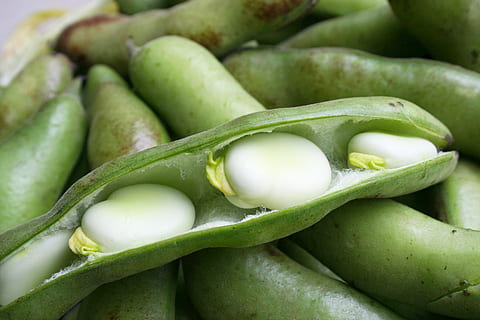
01 Dec KFS-perspective for pulses as a protein source
Pulses are a great source of plant-based protein and fibre; they contain several beneficial bio-active compounds like phytosterols, and their cultivation fits perfectly into a sustainable agriculture. In the Netherlands pulses are not frequently grown and consumed, partly because of the negative connotation as “poor man’s food”.
But there is a growing interest in pulse foods since they provide health and environmental benefits. An example is the “Food Lab Pulses” project which resulted in six innovative products.
Research commissioned by Keep Food Simple revealed promising findings in pilot fermentation of the entire Vicia faba bean. Eloïse Jennes, master student in Health Food Innovation Management at Maastricht University, fermented the faba beans with Lactobacillus strains and evaluated the effect on (1) the sensory properties and (2) the bio accessibility of phytosterols and minerals.
Key results included the finding of vinegary and green sorrel aromas in the fermented beans which could mask the ‘beany flavour’. Eloïse found that beta-sitosterol was predominant and there are indications that fermentation increases the presence of other phytosterols and improves the accessibility of iron. In general iron, zinc and magnesium levels are high in pulses.
All in all, fermentation did positively affect the sensory properties of faba beans. The nutritional quality regarding phytosterols and minerals, together with fermentation, seems to positively affect the bio accessibility of these nutrients.
With these promising results, Keep Food Simple eagerly wishes to pursue its quest towards those plant-based and clean label food products that are made from fermented beans and have the potential to be an alternative to some of the meat products in people’s menus.
Note: Eloïse Jennes’ excellent work has been supervised by prof. Koen Venema, Maastricht University.



